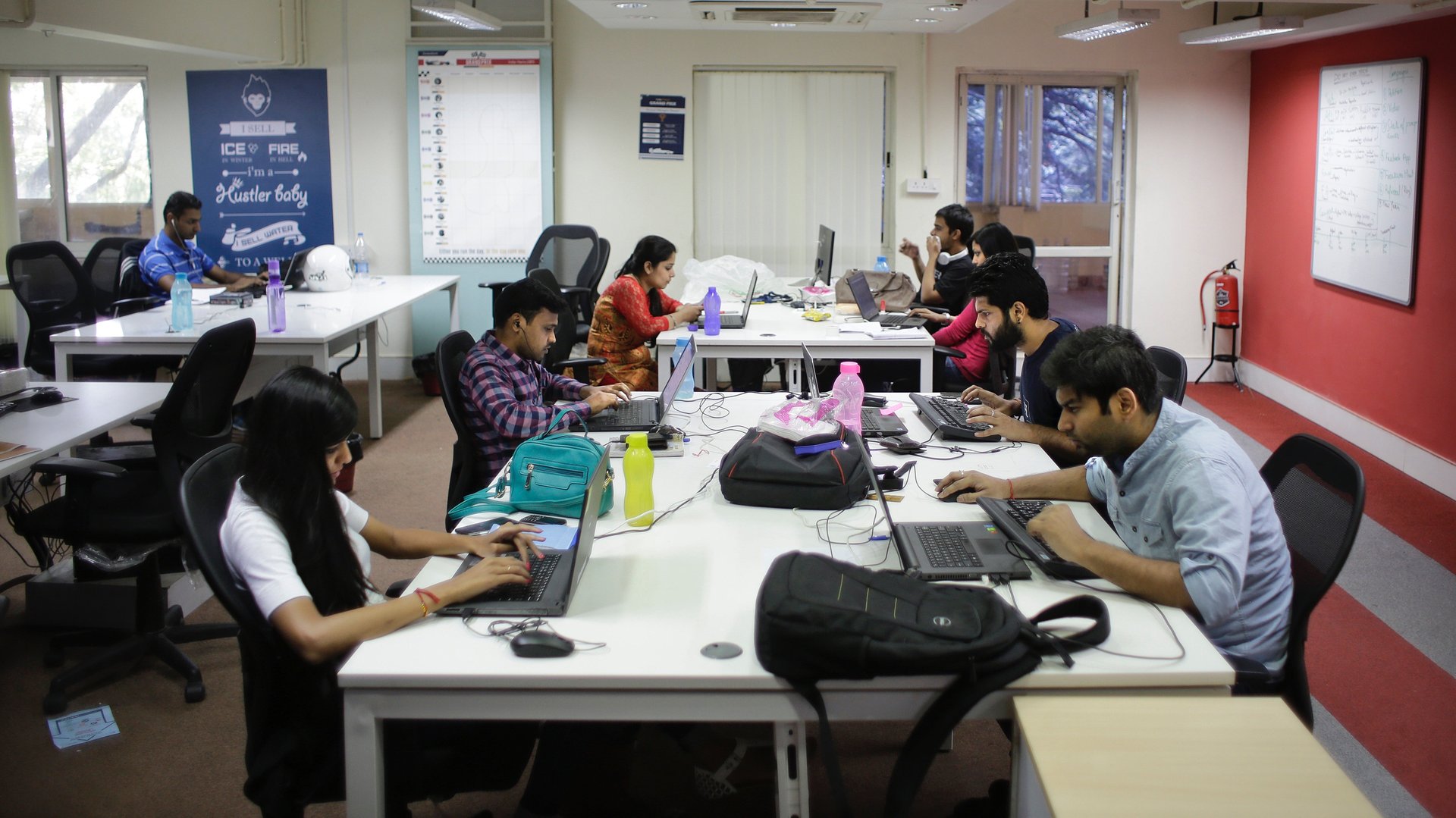India’s IT job seekers have begun to feel the heat of tightening H-1B norms and Brexit
The year 2016 was messy for Indian IT. And 2017 is likely to remain that way.


The year 2016 was messy for Indian IT. And 2017 is likely to remain that way.
A recent employment survey of 560 companies in India for the 2nd and 3rd quarters of 2017 shows that hiring is falling across the sector.
During the first quarter of calendar year 2017, around 73% of the firms said they planned to recruit new employees. But for the April-September period, only 58% said so, according to the Experis IT Employment Outlook Survey (pdf). Experis found that the first survey for 1Q displayed a somewhat promising outlook. But since the Indian IT industry’s future looks bleak, the subsequent survey was done for the longer six-month period.
The slowdown reflects the wait-and-watch mode that IT companies have got into as they make sense of political changes such as Donald Trump’s election in the US and Brexit amid a global economic slowdown, Experis IT said.
Part of the sluggishness is a result of the industry itself evolving. “India is at the cusp of a digital transformation,” AG Rao of Experis IT’s parent company, ManpowerGroup India, said. “With the advent of automation which is expected to impact [a] majority of companies, employers in India state a sluggish hiring scenario.”
A February 2017 study by consulting firm McKinsey estimates that automation will obliterate about half of the 3.9 million jobs at Indian IT companies in the next four years. Nasscom, India’s IT trade association, also expects 20% of low-skill jobs to fade out over the next three years. Tech giant Infosys has already “released” thousands of employees in the past year due to automation.
The jobs that are being wiped out include those involving more basic skills like collecting and processing data, besides infrastructure management and testing. Most employers still have a healthy appetite for candidates with niche skills needed to build and operate complex systems in areas like artificial intelligence and machine learning. Software development remains by far the most sought-after skill, the survey showed.
Unfortunately, there is a paucity of the right kind of talent in the country. A recent study of over 36,000 Indian engineering students found that less than 5% of them meet the minimum requirement for a computer programming job.
Meanwhile, Experis notes that companies will adopt ”alternate talent strategies” like using contract workers and implementing retraining programs for staff. Trying to retain and retrain existing employees will lead to “a slowdown in external hiring at the entry level,” Navnit Singh, chairman and regional managing director of global advisory firm Korn Ferry, told the Mint newspaper. “We have not seen much decline in the mid-senior and senior level hiring.”
Mid-level employees have the most promising prospects, with 53% of the companies looking to increase hiring for people with three to eight years of experience, according to the Experis survey.